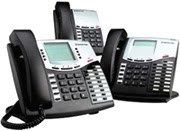 We already past 'R' in our A to Z software tour, but as a honorable mention after recording, here are a number of professional radio programs designed for specific tasks to help the small or start up radio station or podcaster. So if you are interested in creating or hosting your own audio content be sure to check out these radio applications to help you along the way:
We already past 'R' in our A to Z software tour, but as a honorable mention after recording, here are a number of professional radio programs designed for specific tasks to help the small or start up radio station or podcaster. So if you are interested in creating or hosting your own audio content be sure to check out these radio applications to help you along the way:
BroadWave is an audio streaming software program designed to broadcast any audio connected to the sound input on the PC. It will also stream audio recordings and all BroadWave streams will play directly from the default web browser on any modern Windows or Mac computer.
VRS is a professional voice recording application that can be used radio station logging, recording multiple audio channels simultaneously with digital signal processing, automatic level control and a continuous recording mode to easily save a copy of all your broadcasts.
From recording to editing and mixing your audio, interviews, music and voiceovers you won't want to be without our favorite duo, WavePad audio editor and MixPad multitrack mixer both are available for your Windows PC or Mac, and for recording and editing on the go you can also download Pocket WavePad on your iPhone or iPad, perfect for those coffee shop interviews and more.
Want to share a snippit of audio from something else online with your listeners? Save streaming audio as an mp3 or wav file on you computer with the use of SoundTap streaming audio recorder to rip the audio you hear playing on your computer. And you can always visit our full arsenal of radio software for additional radio tools and applications.








